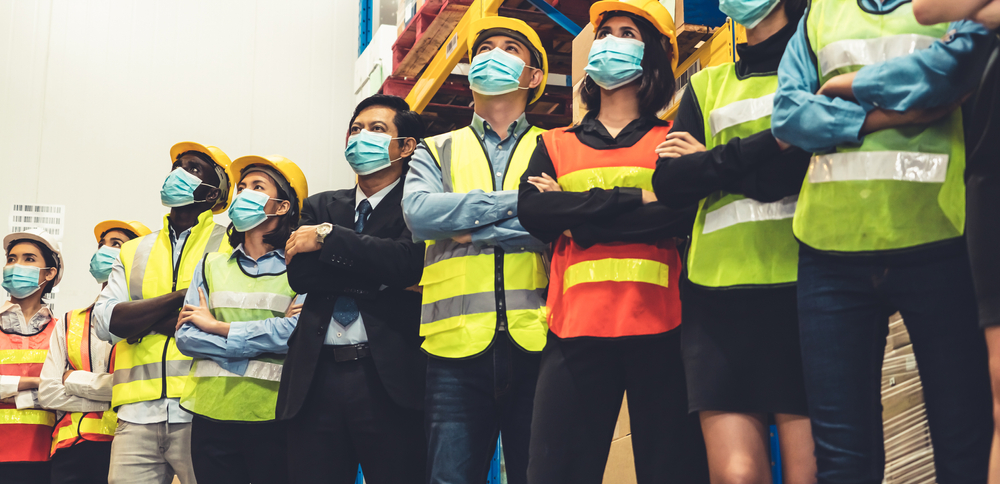As the world continues to grapple with the ongoing COVID-19 pandemic, global supply chain leaders are busier than ever implementing employee health and safety measures to keep both workers and customers safe — even as they keep millions of products moving.
Of course, the threat of coronavirus has dominated the national dialogue. But responsible warehouse managers know that employee health and safety measures are always a top priority. They are important during this pandemic, and they will remain equally important beyond the recovery period. In addition to staying vigilant against coronavirus, suppliers must minimize exposure to influenza, norovirus, and the common cold, as well as E. coli, salmonella, and Listeria. This is not only an ethical obligation, but also a business imperative.
Throughout this outbreak, fulfillment centers have adapted accordingly. Many have supplied workers with masks and other personal protective equipment (PPE). Others have suspended in-person meetings; hastened investments in supply chain automation; distributed more sanitizers; and enhanced their cleaning protocols. Even beyond the pandemic, we recommend that suppliers remain cognizant of best practices and lessons learned.
Viruses are known to linger on surfaces, and here at iGPS, we have been preaching for many years about the benefits of easy-to-clean plastic pallets and comprehensive sanitization procedures. In addition to increasing the distribution of disinfectants and PPE supplies, supply chain managers should consider implementing policies so these tools can be used to full effect:
- Review your employees’ daily processes to find less commonly used or less obvious surfaces that may not be sanitized at regular intervals. For instance, writing instruments should be sanitized frequently, as they have a high chance of transmission and often go unnoticed.
- Identify problem areas. Different kinds of surfaces are harder to clean at regular intervals. Non-plastic pallets are more absorbent than plastic, so they are havens for pathogens and are not as easily sanitized. Non-plastic pallets can also carry an increased risk of splinters and nails, which can potentially damage PPE and cause injuries.
- Invest in efficient cleaning applications for the future. The industry changes that the COVID-19 pandemic has brought on are not reversing anytime soon; finding ways to disinfect quickly and inexpensively, but still effectively, is vital.
Regardless of what materials suppliers are using, it’s important to remember that the threat of a pandemic will come and go. We have an obligation to keep workers and products safe and free of contamination all the time, now and in the future. With diligence and sensible solutions in place, we can all play our part.
Companies who understand the importance of a clean and safe supplychain, rent iGPS plastic pallets for all their shipping needs. Our pallet pooling program limits contaminants, supply chain waste and reduces Total Cost of Business. For more information, call 1-800-884-0225, email a specialist at switch@igps.net, or visit our contact page.



